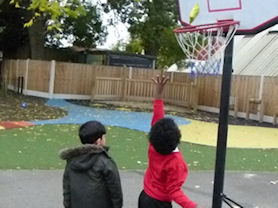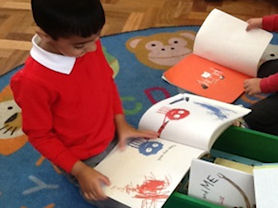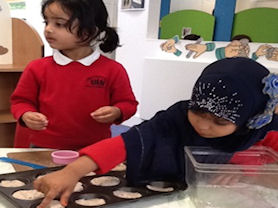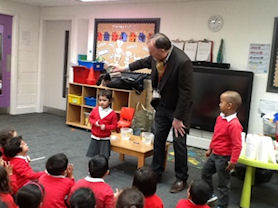Early Years Foundation Stage (EYFS)
EYFS stands for Early Years Foundation Stage and is made up of Nursery and Reception years.
At Clifton Primary School, we provide a rich and vibrant Early Years curriculum. We want all our children to foster a love for learning through a wide variety of activities and experiences.
We pride ourselves on our induction process and aim for all children new to Clifton Primary School to have a home visit from a member of staff alongside a transition meeting for parents. We continue to forge strong links with families during the Foundation Stage and run a number of parent workshops throughout the year.
Every child is baselined within the first few weeks of starting school. We then continually assess the children throughout the year through observations, children’s work and on-going teacher assessments. Each child has a Learning Journal which has observations, children’s work and photographs alongside annotated notes which provide evidence of children’s learning.
We plan using the Early Years Foundation Stage Statutory Framework and deliver the curriculum through a wide range of independent, child initiated and teacher-led activities. We enrich the children’s experiences with a number of high quality educational visits and visitors throughout the year. Through our continuous provision we have access to a range of resources such as: sand, water, messy play, outdoors, construction, small world and role play.
In the Early Years Foundation stage (EYFS), we use Talk for Writing to help foster a love for reading and enjoyment of books. Through Talk for Writing we learn to act our stories, retell them, use actions and symbols and make up new stories. Alongside this we encourage the children and parents to share stories on a daily basis.
We explore numbers and shapes in a variety of practical ways using a range of resources. We extend children’s understanding of these areas through problem solving activities and real life experiences.
Statutory Framework for Early Years Foundation Stage
The EYFS curriculum (September 2014) is mandatory for all EYFS providers. It sets out the areas for learning and development which form the EYFS curriculum.
The Statutory Framework is broken up into seven areas of learning which are interlinked. These are:
- Communication and language;
- Physical development;
- Personal, social and emotional development;
- Literacy;
- Mathematics;
- Understanding the world;
- Expressive arts and design.
The document sets out the expected level of progress for each area; these are called the Early Learning Goals. In a child's final term in Reception the EYFS Profile is completed for each pupil. Each child is assessed against the Early Learning Goals
Development Matters
To help implement the statutory framework, we use 'Development Matters' to support children's learning and development by closely matching what we provide to a child's needs.
Within Development Matters, the Characteristics of Effective Learning are identified. These are:
- playing and exploring;
- active learning; and
- creating and thinking critically.
These play a central role in supporting children to become lifelong learners. Through our observations and knowledge of the children we reflect on the different ways that children learn and refer to them.
The characteristics of effective learning run through and underpin all seven areas of learning and development, representing processes rather than outcomes.
Gallery
 Being imaginative and making special potions in our mud kitchen. |
 Making marks and drawing pictures from stories we have read and shared. |
|
 We love the fresh air and physical exercise. |
 We love reading stories and sharing these at home with our grown ups. |
|
 Exploring different media to make things and role play using them. |
 We love having visitors in school such as the Science Magician. |